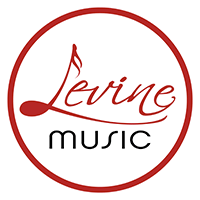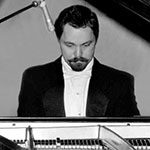Piano, Music Theory, Music History
Education
Julian has a B.M. in Piano Performance and Piano Pedagogy from Appalachian State University and an M.M. in Piano Performance from the Hartt School of Music. He has also completed studies at the Hochschule for Music and the Musikwiessenschfliches Institute in Vienna, Austria.
Performance and Teaching Experience
Julian, whose recitals have been broadcast on Radio Europe and Voice of America, held performance contracts with NASA, the National Archives and Columbia Artists. He has performed for 25 years with his piano duo partner Sophia Pallas and have recorded two CDs together. Their multimedia video of the two-piano version of Gustav Holst’s The Planets is in the National Archives permanent collection. Julian is also a performing member of the Friday Morning Music Club.
For ten years prior to coming to Levine, Julian was the Director of Applied Music and the Preparatory Division at American University and before that on faculty at Limestone College in South Carolina. He is currently on the board of the Washington Music Teachers Association and regularly adjudicates for regional competitive events, and coordinates the WMTA judged recitals.
At Levine
Former Assistant Dean at Levine, Julian joined the faculty in 2002 and is now teaching private piano instruction, music theory and music history classes.
“Levine is a hugely resourceful institution, creating opportunities that are limited only to the imagination. Each day I relish in the privilege to share ideas with and learn from my interactions with my teacher colleagues and the exuberant students.”
Teaching Philosophy and Approach
“I feel rewarded over and over as students discover the gifts that music offers and as I watch how it nurtures their lives emotionally, academically and spiritually.
It is my goal to provide a teaching approach that is centered on students’ individual learning modality, aspirations and sensitivities, and assists them in developing a solid technical proficiency, critical listening, effective practice habits, focused goals, and problem solving skills. Students learn how their body machine functions to contribute to the success of their sound or technique. And I strive to help students develop independent musical thinking, empowering them to achieve and discover on their own throughout life.
It is important to open doors to a wide variety of styles of literature. It is equally important to help students build a foundation in theory and history to identify their music’s origin, syntax and structure. I often make comparisons between music and language, or other forms of art, architecture, or social graces from the same historical period, to help grasp a character. These elements provide context that ultimately breathes life into music.
As every student possesses a different variation of excellence, it is my goal to help each student discover their unique brilliance. I believe in the transformational possibilities created by having an open mind and a willingness to try. And I also feel that positive, encouraging reinforcement and caring yet focused teaching is essential to reveal a student’s personal best. As talent doesn’t discriminate, music can be found in anyone. While one student might be a natural performer, another is not. More than anything, I want students to enjoy making music. I hope that the experience will generalize into their life as passion, positive communication, self-confidence, values and joy.”
Personal
Outside of music, Julian is passionate about gardening, cooking and portrait painting.

